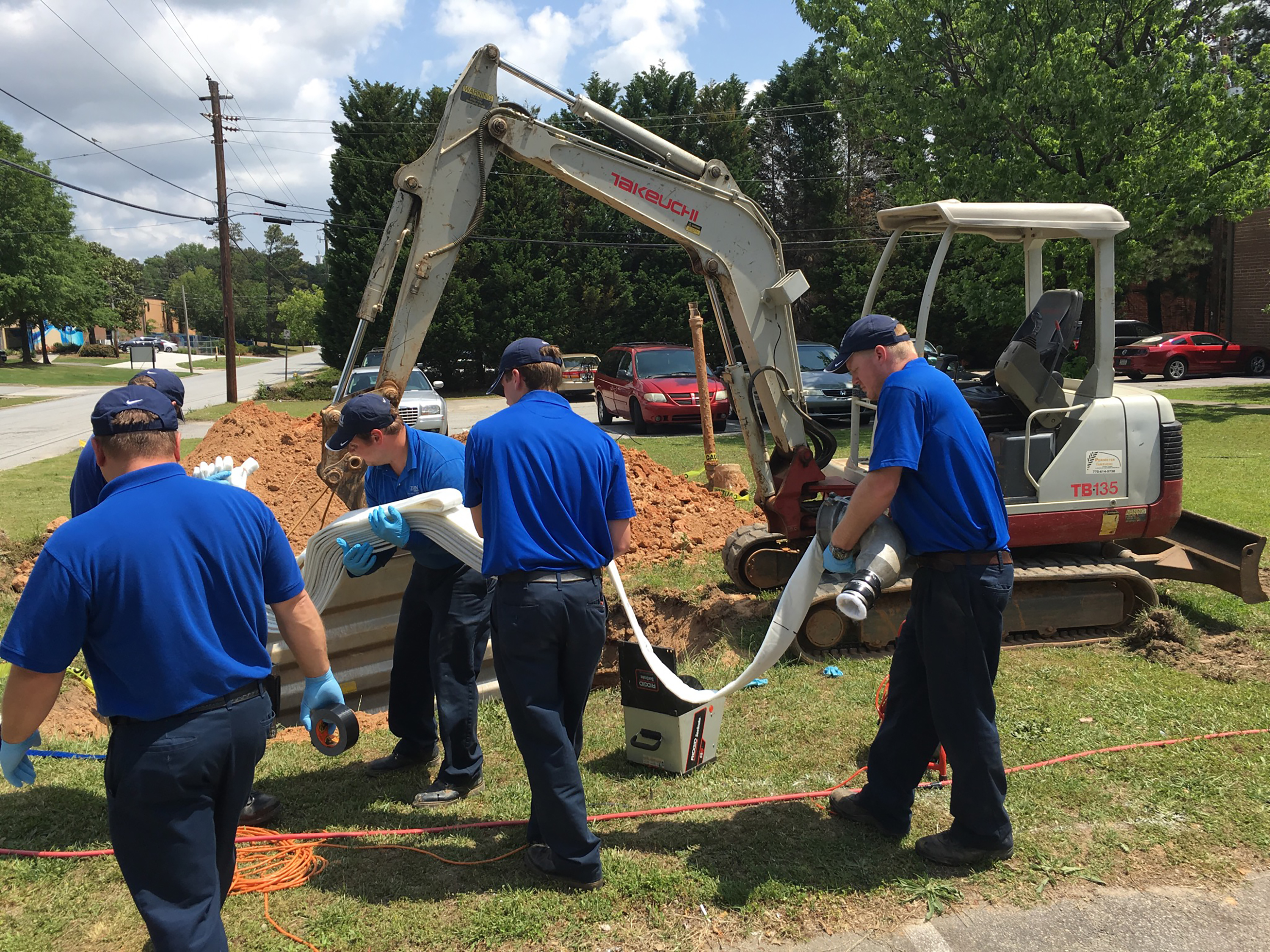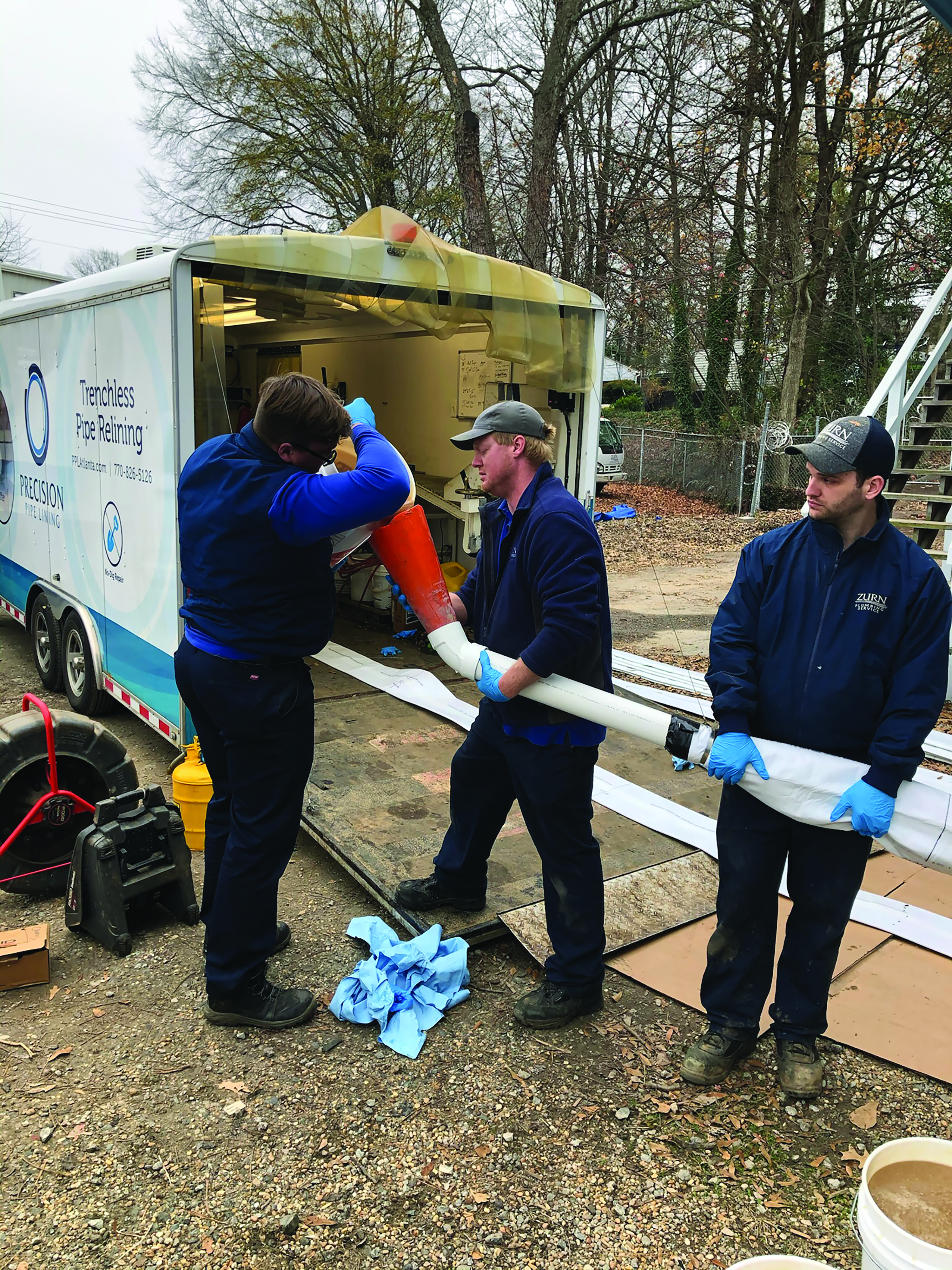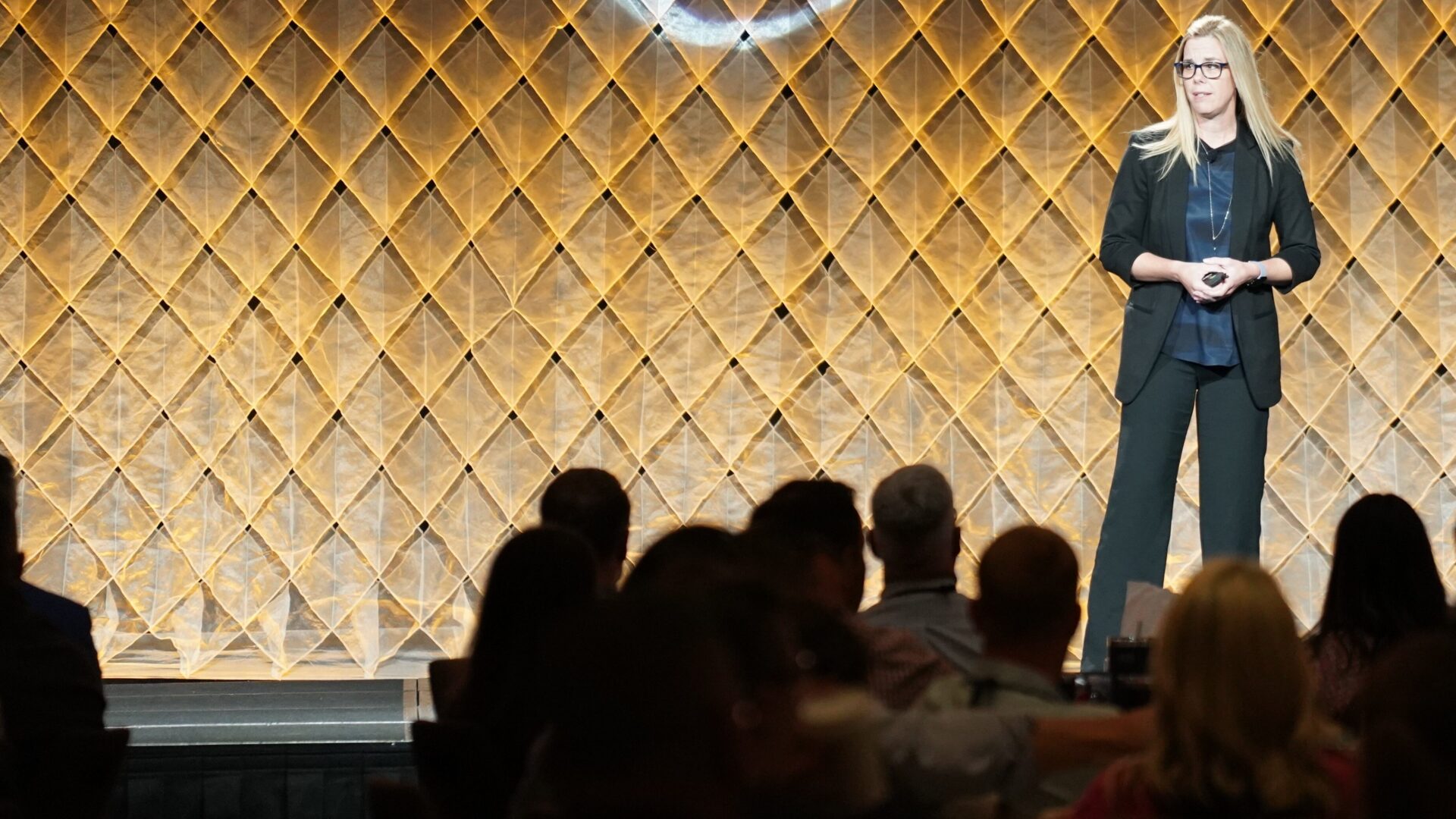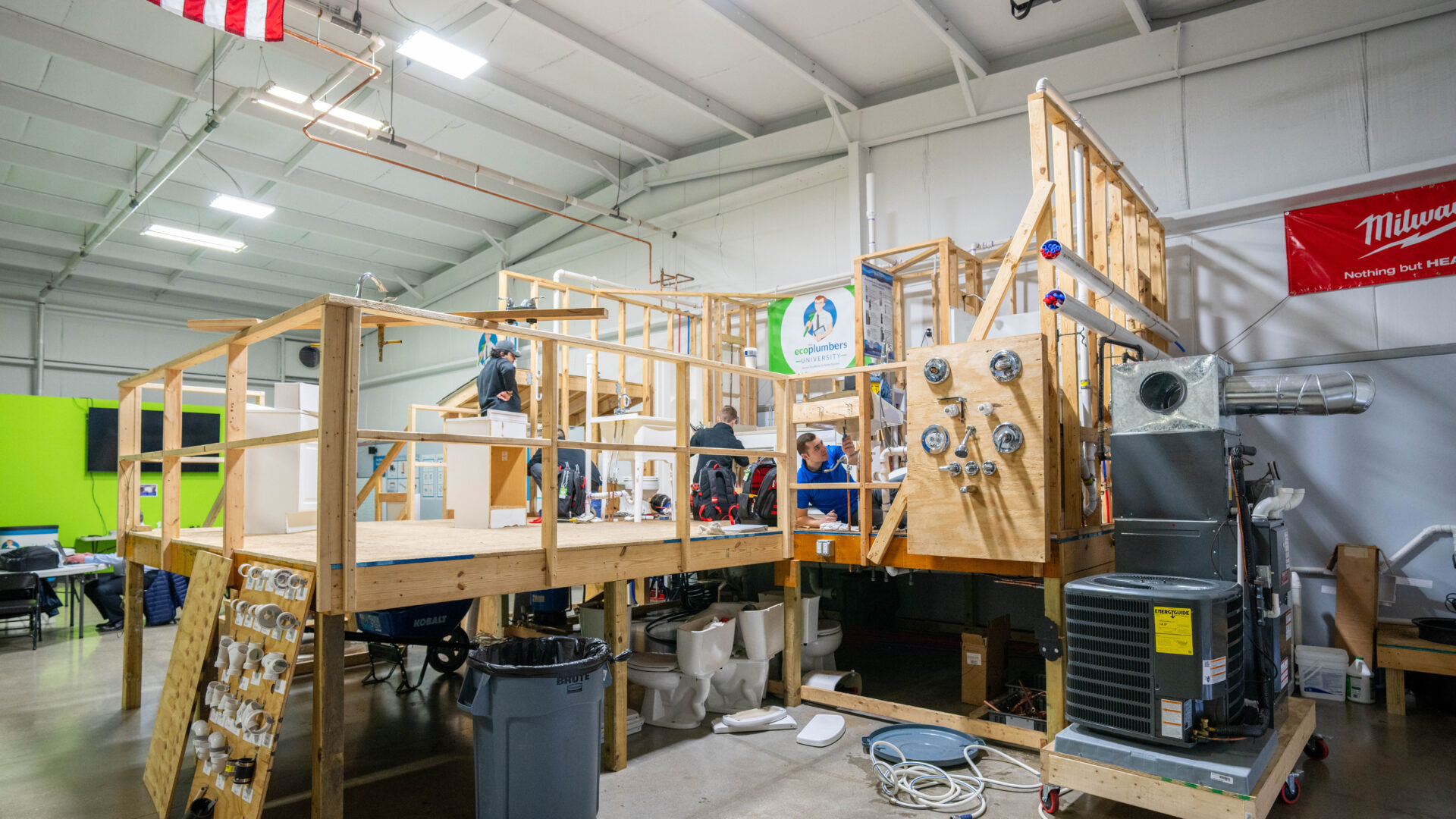Pipeline Profits: Why Plumbing Contractors Should Offer Pipe Relining Services
In the plumbing contracting industry, staying ahead of the curve is essential for success. As technology advances and consumer demands evolve, plumbing contractors must continuously adapt their offerings to meet these changing needs. One such service that holds immense potential for growth and customer satisfaction is pipe relining. While traditional pipe repair methods have their place, integrating pipe relining into a plumbing contractor’s repertoire can offer a plethora of benefits, both for the business and its clientele.
Zurn Plumbing Services, based in Chamblee, Georgia, has been offering pipe relining services for more than eight years under the brand Precision Pipelining, according to Owner and Nexstar member Matt Zurn.
“We’re in the north end of Atlanta – there are tons of old buildings around us, whether they’re homes or businesses,” Zurn says. “We’ve also done a lot of work up in Athens for some of our plumbing contractor friends that we’ve made over the years. There’s lots of old stuff up there in downtown Athens and around Athens. We’ve traveled pretty much all over the state to do this.”

HOW IT STARTED VS. HOW IT’S GOING
Zurn first became interested in pipe relining after attending Nexstar Network’s Super Meeting in 2015. “I walked up to the Perma-Liner booth because it had all these medieval-looking tools. I started talking to a guy named Rob Larsen (he’s a friend now) and asked, ‘Why bother lining any pipes? Because you’ve still got to dig an A side and a B side, then you pull this wet diaper thing in there. It just seems like if you’re going to do all of that, you might as well just dig the whole thing up and forget about it.’ He said, ‘Yeah, but you don’t have to do that.’ He started talking to me about inversion lining. When he was telling me about that, I was thinking how we dug up a lot of sewer laterals from the house to the road, and I thought if we could cut back on that, maybe there’d be a savings. It’s also a service that not very many people offer, which set us apart from our competition.
“Plus, sewers are very deep around here sometimes,” Zurn adds. “Sometimes they’re eight, 10 feet by the time you get out to the street. Sometimes they’re deeper than that. I thought it’d be safer to do this than to dig a hole and put a man down there and mitigate as much risk as we can. That was the intent ¬– to do residential sewer laterals.”
Larsen invited Zurn to visit Perma-Liner in Clearwater and see some live demonstrations the following month. By the end of the visit, Zurn and his father decided to buy an inversion lining trailer and add that service to their repertoire.
He admits to a lot of mistakes and learning, “thinking to myself, ‘Oh God, what did I get us into?’” Things eventually smoothed out, though, as his team learned the process and they bought more equipment. Today, Precision Pipelining generates $1.6 million a year for Zurn Plumbing Services.
“We are a lining company recommended by other plumbers,” Zurn notes. “Depending on what kind of customer it is, sometimes they own other properties and then we do work at other properties, and then they start using us for plumbing or things like that. It kind of goes from there, but the lining feeds the plumbing side, and the plumbing feeds the lining side. They’re kind of symbiotic.”

AGING INFRASTRUCTURE CREATES OPPORTUNITY
Morgan Dietsch, Director of Marketing for Waterline Renewal Technologies, parent company of Perma-Liner, notes that pipe relining has been experiencing growth in recent years, and the trend is expected to continue.
“Many urban areas have aging water and sewer infrastructure that requires rehabilitation,” she says. “Relining is often a more cost-effective and less disruptive solution compared to traditional pipe replacement methods. In addition, innovations in relining materials and techniques, such as Cured-in-Place Pipe (CIPP) and trenchless technologies, have made pipe relining more efficient and reliable. These advancements have expanded the range of applications for pipe relining.”
Relining can also address environmental, regulatory, and cost concerns, Dietsch adds. “Increasing environmental regulations and a growing emphasis on sustainability are driving the demand for trenchless rehabilitation methods like pipe relining, which minimize surface disruption and environmental impact. Relining is often more cost-effective than replacing pipes, especially in urban areas where excavation can be expensive and disruptive.”
Jeff Atwell, plumbing subject matter expert at Nexstar and a 35-year industry veteran, definitely sees opportunities for plumbers to add pipe relining services to their businesses.
“It’s a better option than traditional excavation, especially if you have landscaping and/or things in the way that you don’t want torn up,” he says. “These services tend to be very profitable if they’re priced right, and it’s just an added service that our members can provide to customers. And not every plumbing company is geared for things of that scale, whether it be excavation, pipe lining, or pipe bursting, so it can help differentiate your company in your marketplace. The real key to having a successful relining company is having a successful drain/camera inspection department, because they are going to feed your leads for these types of jobs.”
HOW IT WORKS
According to Dietsch, LightRay UV technology is the latest technology used in the pipe lining industry.
“This technology utilizes ultraviolet (UV) light to cure the liner inside the host pipe, providing several advantages over traditional ambient, heat, or steam curing methods,” she says. “UV light can cure the resin much faster than traditional methods, significantly reducing the time required for the lining process, greatly reducing risk, and minimizing disruption. LightRay UV technology is considered more environmentally friendly because it produces fewer emissions and odors during the curing process. The curing process can be closely monitored and controlled, ensuring a consistent and high-quality finished product. And lastly, UV technology can be used for a wide range of pipe diameters and lengths, making it suitable for various applications in drain, sewer, and industrial and municipal pipeline rehabilitation.”
Dietsch adds that relined pipes often have a lifespan comparable to or even longer than new pipes, providing a long-term solution for clients and reducing the likelihood of future repairs.
LEARNING THE ROPES
“Waterline Renewal Technologies and its subsidiaries, such as Perma-Liner Industries and LightRay, offer various training and support options for contractors and technicians involved in pipe relining projects,” Dietsch says. These include certification training, on-site training, technical support, and equipment support.
“We also offer a CIPP 101 Sales Training Program that is designed to equip sales professionals with the knowledge and skills needed to effectively educate the end-user by offering the best solutions possible,” she adds.
For any plumbing contractor considering adding pipe relining services to their businesses, Zurn encourages them to hire a company with similar equipment and an experienced crew to come work some jobs with their crew. “We’ve done this before, too. It may cost you a little bit more up front, but your ability to be successful is going to be greater. We didn’t have a lot of problems when we started, but we did have some. I never went back to Perma-Liner on any of them because they were our mistakes, and it was a learning curve for us. It wasn’t anything wrong with their training, but there’s a lot you need to know and there’s a lot of things that you might not know. Having some guys that maybe are local or semi-local that you could call and ask advice to or something like that – I think that’s good. I’ve learned tricks from all kinds of people over the years.”
Zurn adds that Perma-Liner has been a great partner for his company.
“They have quality equipment and products,” he says. “I’ve never had to call them for a warranty on anything, and we’ve put a lot of their liner in the ground over the years. They’ve been supportive in terms of getting us what we need, even going as far as overnighting us stuff. We’re able to count on them.”
“Adding pipe relining services can lead to increased revenue streams for plumbing contractors by tapping into a growing market and providing high-value services to clients,” Dietsch adds.


